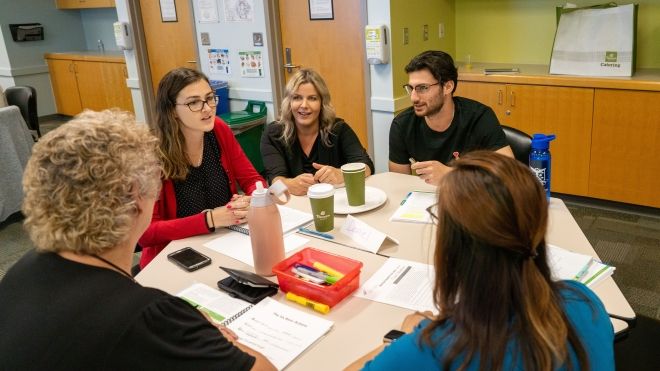
To be successful, Ontario's Roadmap to Wellness needs a comprehensive and fully-funded plan to reduce wait times: combined statement from Ontario’s mental health and addiction providers.
The province’s leading public providers of adult, child and youth mental health and addiction care agree that the elements of Minister Christine Elliott’s Roadmap to Wellness have the potential to transform mental health and addictions care for Ontarians, however not unless it is combined with substantial and immediate investment in the 2020 Ontario Budget.
In particular, we applaud the government’s commitment to develop and commit to a comprehensive wait-times strategy for the mental health and addiction sector. Investments in expansion of front-line services must be a priority, particularly at this time when hospitals are strained and the community sector is struggling with extremely long wait lists. We estimate that at least $380 million in new annualized investments is urgently needed to begin reducing wait times in three critical priority populations/areas: children and youth, people with the most complex needs, and availability of supportive housing.
When dedication, substantial funding, comprehensive data, and performance reporting have come together before, we’ve seen wait times successfully addressed, notably for cancer care and hip and knee replacement surgeries. In cancer, for example, expert guidelines provide a target wait time for services such as surgery and every patient’s wait times are tracked and managed. Right now, Ontarians can go online and find out wait times for MRIs or CT scans at their local hospitals. Funding flows to providers to fill gaps in the difference between actual and wait time targets.
The government has laid the foundation for this important work with the Mental Health and Addictions Centre of Excellence – all MPPs are applauded for their support of this Centre, no matter what their political stripe. If the time has come, and we really hope it has, when mental health and addiction really is treated as “healthcare”, then the Centre of Excellence must make reduction of wait times its top priority.
A twelve-year-old with suicidal ideation needing intensive mental health services can’t wait for two years. An eighteen-year-old man who has overdosed three times in the last month whose assessment points to a need for long-term residential addiction treatment can’t wait another eighteen months. And a sixty-year-old elderly woman who is living with schizophrenia needs access to stable, supportive housing with on site case workers should not need to live in the shelter system for years waiting.
The Ontario government has promised to end hallway healthcare, improve mental health and addiction supports and significantly increase annual investments. Collectively, we have seen many plans on mental health and addiction over the last ten years. Above all, our clients and the people who support them need action. Now we need to see whether clients and families will receive enough funding in the 2020 Ontario Budget to make that a reality in the next year and beyond. Together, we remain firmly committed to working with the government to meet its platform commitment on mental health and addictions.
- 30 -
Statement provided by:
Addictions and Mental Health Ontario (AMHO), Canadian Mental Health Association – Ontario Division (CMHA-ON), Children’s Mental Health Ontario (CMHO), and Mental Health Partners (MHP), which consists of the Centre for Addiction and Mental Health, Ontario Shores Centre for Mental Health Sciences, Royal Ottawa Health Care Group and Waypoint Centre for Mental Health Care
For more information, please contact:
Joe Kim, Director, Communications, Canadian Mental Health Association, Ontario
416-977-5580 ext. 4141
@email



